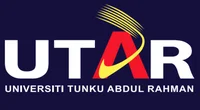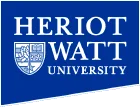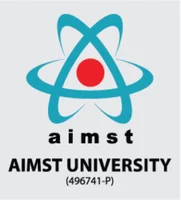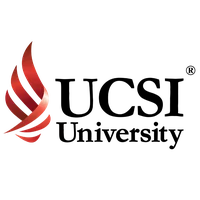Bachelor's Degree courses in Applied, Pure Sciences in Malaysia
Through an Applied and Pure Sciences Bachelor's degree, students access endless opportunities as the science and technology field rapidly progresses. Scientists receive more than $2 trillion annually from global laboratories, demonstrating that skilled biotechnology researchers, environmental science experts, and medical researchers now face a significant employment need.
The degree provides students with fundamental scientific knowledge and practical skills necessary to excel professionally both in theoretical and practical scientific fields throughout biology, chemistry, and physics.
The leading Malaysian universities present programs that connect thorough academic teachings to practical application so students can build essential skills for real-world success. The Malaysian employment market absorbs more than 60 percent of science graduates to work in research and development, healthcare, and engineering roles, which drive global progress.
Students learn critical thinking and problem-solving methods through the curriculum while receiving preparation for handling tough market challenges in environmental management and pharmaceutical development, among other fields.
Program Overview
Duration: Typically, it is 3 to 4 years, depending on the university and program structure.
Core Modules
- Introduction to Scientific Methods.
- Mathematics for Scientists.
- Physics and Chemistry Fundamentals.
- Biology and Environmental Science.
- Applied Research Methods.
- Lab Techniques and Safety Protocols.
- Computational Science.
Electives/Specializations
- Environmental Science
- Biotechnology
- Medical Sciences
- Materials Science
- Nanotechnology
Best Courses for a Bachelor's in Applied and Pure Sciences in Malaysia
- Bachelor of Science (Hons) in Biotechnology
- Bachelor of Science (Hons) in Environmental Science
- Bachelor of Science (Hons) in Physics
- Bachelor of Science (Hons) in Chemistry
- Bachelor of Science (Hons) in Mathematics
Some institutions that offer these programs are UCSI University, INTI International College Subang, Monash University Malaysia, and AIMST University. Every university provides a good balance of theoretical knowledge and flexibility in learning so that students are fit for different positions in science.
Entry Requirements for a Bachelor’s in Applied and Pure Sciences
1. For Local Students
- STPM/A-Level: Minimum of 2 Bs in relevant science subjects.
- Foundation/Pre-University: Completion of a recognized program focusing on science.
- Diploma: Relevant diploma from a recognized institution, often with the possibility of credit transfer.
2. For International Students
- Equivalent to STPM, such as O-Levels, IB, or other recognized qualifications. Grade requirements may vary, typically requiring a minimum of 12–16 points in relevant subjects.
- Foundation Program: Completing an international foundation course focusing on science subjects such as biology, chemistry, or physics.
- English Proficiency: IELTS score of 5.5–6.0 or a TOEFL score of 550 (paper-based) or 80 (internet-based).
Credit Score: A number of these universities also have other conditions that any student must fulfill, including a set credit score for courses related to the area of specialization. For instance, applicants may require a credit score of 5 or above in biology, chemistry, or mathematics.
Career Opportunities in Applied and Pure Sciences
Job opportunities available to graduates with a bachelor’s degree in applied and pure sciences are diversified to enable them to work in different sectors, including the health sector, environmental sector, research institutions and industries, and engineering and teaching sectors. Some career options include:
- Research Scientist
- Environmental Consultant
- Biotechnologist
- Laboratory Technician
- Data Analyst
- Science Educator/Teacher
Essential Skills for Success in Applied and Pure Sciences
Specific skills are critical to succeeding in applied and pure sciences. These skills help graduates effectively navigate the challenges of scientific research and real-world applications:
- Analytical Skills
- Attention to Detail
- Research Skills
- Communication Skills
- Problem-Solving
- Technical Proficiency
Don't let uncertainty hold you back - reach out to our advisors today for free advice and take the first step towards your science career!
Why Study Applied and Pure Sciences in Malaysia?
Students who study Applied and Pure Sciences will find Malaysia offers an excellent environment with quality learning at cost-effective prices and professional career prospects.
1. Best Universities: Three distinguished Malaysian institutions, including , UCSI University, INTI International College Subang, and Monash University Malaysia host world-class science programs. These institutions walk the tightrope between classroom concepts and practical experiences, preparing students perfectly for job markets.
2. Affordable Fees: The total cost of studying science at universities in Malaysia remains much lower than educational fees in Western educational systems. The academic cost at Malaysian universities for international students ranges from MYR 12,000 to MYR 25,000 annually based on program type and educational institution. The total yearly expenses, including housing, accommodation, food, and transport in Malaysia, can be managed through affordable prices, which fall between MYR 15,000–20,000.
3. World-Class Facilities: Science institutes throughout Malaysia grant students the use of world-class laboratories and research installations alongside professional academic staff. Students acquire experiential academic material and capabilities through these institutional resources to undertake impactful lab-based research.
4. Industry Partnerships and Internships: Universities in Malaysia collaborate intensively with worldwide industries and research organizations. The university-industry partnerships connect students to valuable internship experience and applied work assignments and determine career paths that elevate students' professional abilities.
5. High Demand for Graduates: Malaysia’s expanding biotechnology, environmental sciences, healthcare, and engineering industries actively recruit trained science professionals. By doing so, graduates successfully transition between completing their education and working in the job market or entering postgraduate programs.
Frequently Asked Questions
1. What are the best degree courses in applied pure sciences in Malaysia?
Top courses include Biology, Chemistry, Physics, Environmental Science, and Biotechnology, offered by leading universities like Monash University, UCSI University, and UTAR.
2. What are the fees for degree courses in applied pure sciences in Malaysia?
Tuition fees for science degrees in Malaysia range from MYR 12,000 to MYR 25,000 per year, depending on the institution.
3. Which applied science courses are offered at UiTM?
UiTM offers applied science courses such as Biotechnology, Environmental Science, and Applied Chemistry, emphasizing practical learning and research.
4. What are some examples of pure and applied science courses?
Pure science courses include Physics, Chemistry, and Biology, while applied science courses include Biomedical Science, Environmental Engineering, and Food Technology.
5. What courses are available for Science stream students in Malaysia?
Science stream students in Malaysia can pursue courses like Biotechnology, Environmental Science, Pure Chemistry, Applied Physics, and Data Science.
6. What is the difference between pure science and applied science with examples?
Pure science focuses on theoretical research (e.g., Physics, Biology), while applied science uses that knowledge for practical purposes (e.g., Engineering, Medicine).
7. Pure science vs applied science: Which is better?
Both have unique merits. Pure science is ideal for research and academia, while applied science suits students aiming for industry and practical innovation.

 +60142521561
+60142521561












